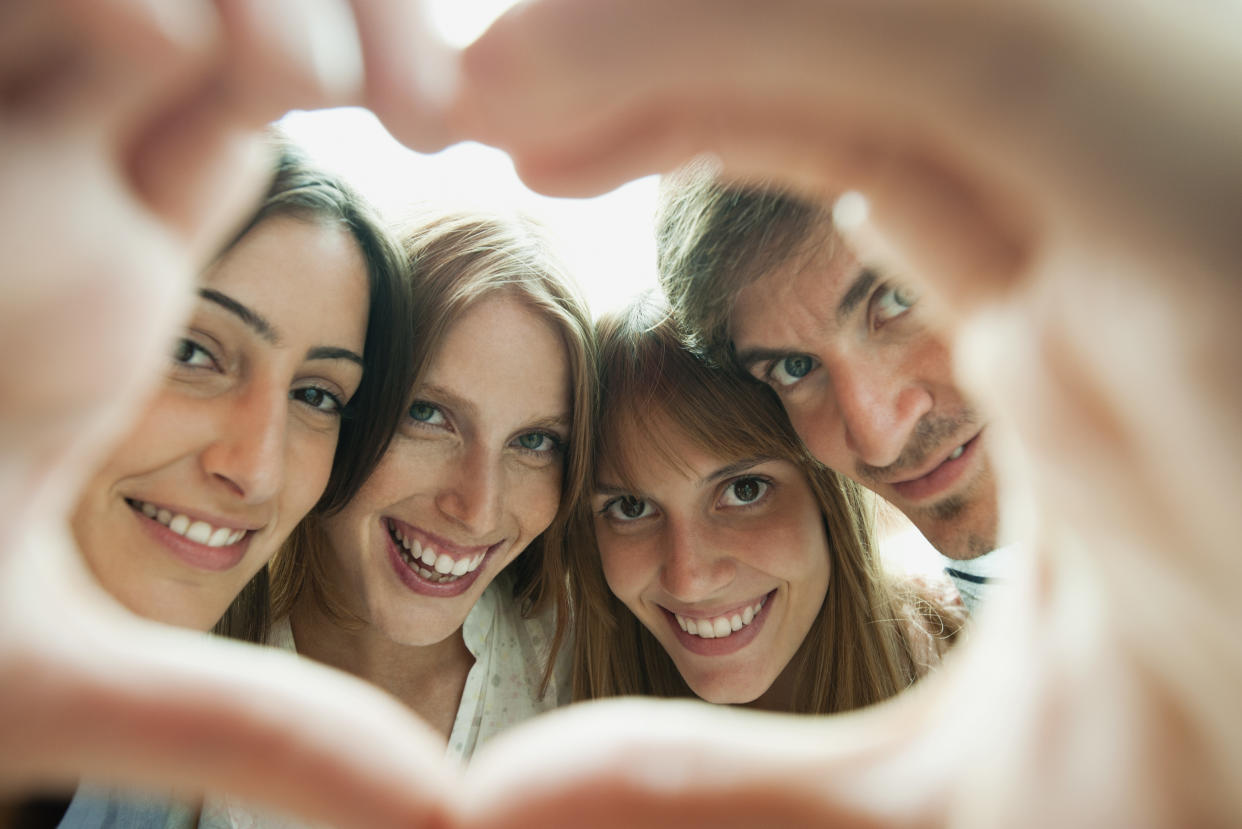Being kind could help you live longer

Being kind could help you live longer, an expert has said.
Dr Kelli Harding from Columbia University in New York believes showing compassion lowers our blood pressure, while giving our immune system a boost.
Other experts agree, calling the act “therapeutic” and even a “treatment” for depression.
READ MORE: Hugh Jackman praised by fans following kind gesture
“[Being kind] helps the immune system, blood pressure, it helps people to live longer and better,” Dr Harding, who penned the book The Rabbit Effect, told the BBC.
“It's pretty amazing because there's an ample supply and you can't overdose on it.”
Dr Harding was inspired by rabbits after learning the laboratory animals do better when cared for by a kind scientist.
Professor Daniel Fessler - from the University of California LA’s (UCLA) Bedari Kindness Institute - agreed, calling kindness “therapeutic”.
“There are benefits for treating depression and anxiety,” he said.
READ MORE: What is 'snowball stress' and what's most likely to cause it?
Scientists from the University of British Columbia put this theory to the test when they looked at more than 140 people with social anxiety.
Some of the participants were asked to take part in “kind acts” for four weeks.
At the end, those who showed compassion were significantly more likely to report relationship satisfaction, as well as being less likely to avoid social situations.
A team from Purdue University in Indiana also found those who volunteer have lower levels of the protein CRP, a marker of inflammation.
Inflammation has been linked to everything from depression and dementia to heart disease and even cancer.
But it may not be enough to be kind yourself.
Living with a malicious, spiteful or insensitive person could trigger “bad stress” that “shortens your life”, Professor Fessler warns.
Yahoo UK previously looked at how chronic stress can be life-threatening, with a constant surge of adrenaline and cortisol raising our blood pressure.
The UCLA scientists warn we are living in an “unkind age”, with “increasing conflict” between those of “different political views or religions”.
READ MORE: Photo of 8-year-old helping autistic classmate on first day of school goes viral
To combat this, they are investigating how kindness spreads.
The scientists believe seeing a kind act inspires you to do the same.
Author Gabriella Van Rij - founder of the #Daretobekind movement - told the BBC simply listening to what someone is saying and responding to rudeness in a pleasant way could be all it takes to live a more compassionate life.
And including those who feel isolated may help them feel valued, she added.
For when you inevitably encounter rudeness or hostility, Ms Van Rij recommends you take a deep breath and remind yourself the other person’s reaction is their own issue and not really about you.


